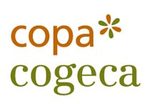|
|
| 14 mar 2019 |
09:09 |

|
Copa and Cogeca call on MEPs to reject Commission�s delegated regulation on low-ILUC risk biofuels
Today, the European Commission released the delegated regulation establishing the framework for the use of palm oil feedstock in the EU for the decade to come. Despite listening to the concerns expressed by a broad range of stakeholders over the past weeks, the final proposal failed to close loopholes that will inevitably result in the expansion of the use of palm oil feedstock, undermining the new renewable energy directive (RED II) in the long run.
|
|
The delegated regulation released by the Commission today classifies palm oil as a high ILUC-risk feedstock which should be capped at its 2019 level of the consumption in accordance with RED II. Nevertheless, the Commission left the door open for the use of palm oil feedstock for energy to be considered as having a low ILUC-risk impact. Despite some technical improvements to the first draft, the definition of low ILUC-risk biofuels proposed by the Commission is littered with loopholes that are a serious cause for concern among the European farming community.
A first concern arises from the determination of palm oil as the only high ILUC-risk feedstock from palm, excluding all other palm products from the scope. Worse still, the current proposal grants a special exemption for palm oil produced by small farm holders. For Copa-Cogeca, this approach is highly controversial as there are no guarantees that small holders are not associated with deforestation, which was the overall objective of the regulation.
Under such provisions, there is a significant risk that the use of palm oil for energy will increase, while European farmers, who respect high environmental standards, will face a cap on EU crop-based biofuels. In the long run, this will only undermine the ambition of RED II within the European farming community and beyond.
Reacting to the tabled regulation, Pekka Pesonen, Copa-Cogeca’s Secretary General, said “A loophole is a loophole, regardless of how narrow it is. Despite technical adjustments, the Commission’s final proposal does not provide sufficient guarantees that palm oil certified as “low ILUC-risk” will have only a limited impact on deforestation in third countries. This is why we call upon the European Parliament and Member States to reject the proposed delegated regulation, and demand that the European Commission come up with a new proposal in accordance with the initial objectives of RED II.”

|
|
|
|